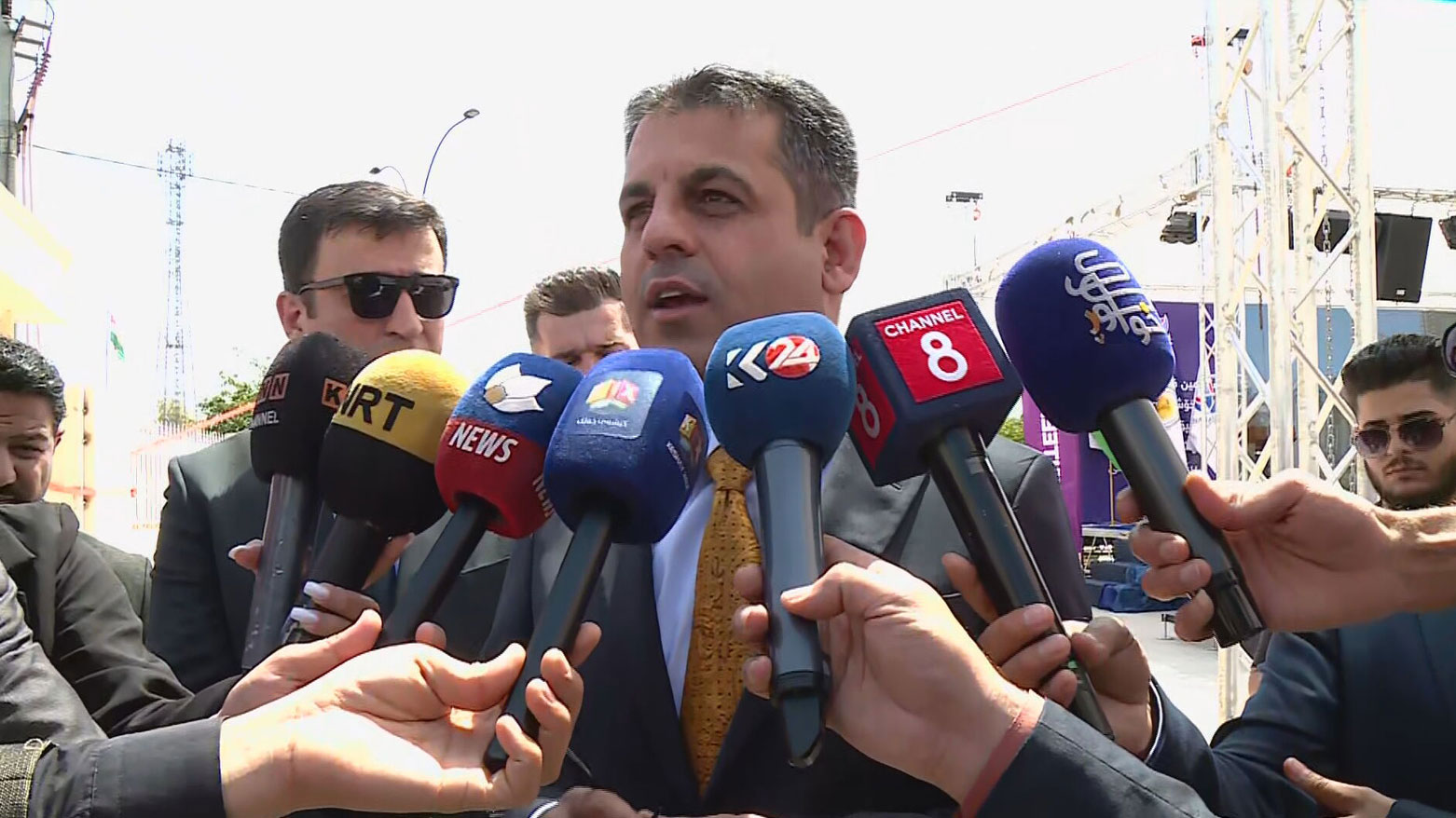KRG: No Fever Cases, Aid Offered to Affected Areas
KRG Health Minister Barzanji offered help to Kirkuk amid hemorrhagic fever cases: “We are fully ready to support Kirkuk’s health department with testing, treatment, and patient care.”

By Kamaran Aziz
ERBIL (Kurdistan24) — In a reassuring statement amid rising concerns over the spread of hemorrhagic fever in parts of Iraq, Dr. Saman Barzanji, the Kurdistan Region’s Minister of Health, confirmed on Sunday that there are currently no suspected or confirmed cases of the virus within the Region.
The announcement, made during a press conference in Erbil, comes as Iraq grapples with a growing number of infections and fatalities, particularly in Kirkuk.
Barzanji described hemorrhagic fever as a severe and potentially fatal disease, noting that its mortality rate ranges between 50 and 60 percent due to uncontrollable internal bleeding. Despite the high fatality risk, he emphasized that the Kurdistan Region has managed past cases effectively through swift medical response and preventative measures.
"Fortunately, there are no suspected cases of hemorrhagic fever in the Kurdistan Region at the moment," Barzanji stated. He attributed this success to proactive measures taken over the past two years under the directive of Kurdistan Region Prime Minister Masrour Barzani.
These measures include annual animal farm disinfectant spraying operations that begin in late winter and early spring, as well as strict oversight of slaughterhouses and livestock health through collaboration with the Ministry of Agriculture and Veterinary Directorate.
The Health Minister also highlighted the Region's preparedness to support other Iraqi provinces currently facing outbreaks. In particular, he extended an offer of assistance to the health sector in Kirkuk, which has recently reported multiple cases of hemorrhagic fever, including fatalities. “We are fully ready to support Kirkuk’s health department with testing, treatment, and patient care,” Barzanji said.
According to Iraq’s Health Ministry, 14 cases of hemorrhagic fever have been confirmed across the country since the beginning of 2025, with two fatalities reported in Kirkuk. One of the victims was a health worker, underscoring the heightened risks faced by frontline personnel and those working closely with livestock. Cases have been reported in several provinces including Dhi Qar (6), Kirkuk (4), and one each in Baghdad, Muthanna, Nineveh, and Basra.
Dr. Saif al-Badr, spokesperson for the Iraqi Health Ministry, noted that the virus is primarily transmitted through direct contact with infected animals or their meat, as well as through tick bites. He stressed the importance of early diagnosis and called on citizens to remain vigilant and seek immediate medical attention if symptoms such as fever, bleeding, or fatigue appear. “The disease can be managed if caught in time,” al-Badr said.
Hemorrhagic fever, endemic in Iraq since the late 1970s, continues to pose a recurring public health challenge. Its resurgence this year has sparked renewed concern, particularly in Kirkuk, which has seen four cases in the past week alone. Two other patients in the city remain under medical supervision and are reported to be in stable condition.
Kurdistan24’s correspondent in Kirkuk, Soran Kamaran, reported that the deceased health worker had developed severe complications shortly after diagnosis and succumbed to the illness. The body was transferred to the forensic medicine department for legal procedures.
Health officials attribute last year’s record-high infection and mortality rates to insufficient containment measures. While the 2024 outbreak was ultimately brought under control, authorities are urging greater public adherence to hygiene protocols, especially in areas with high livestock density.
The Ministry of Health continues to remind citizens to properly store meat at cold temperatures, ensure thorough cooking, and observe all veterinary recommendations to prevent further spread. With Iraq’s healthcare system under strain and rural regions most at risk, the Kurdistan Region’s preparedness and willingness to assist neighboring provinces like Kirkuk signals a coordinated national response to this dangerous and persistent health threat.
